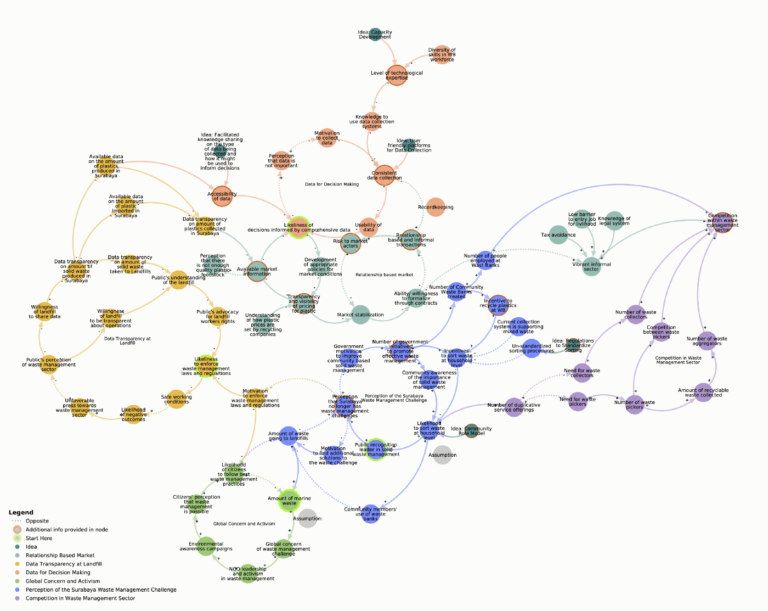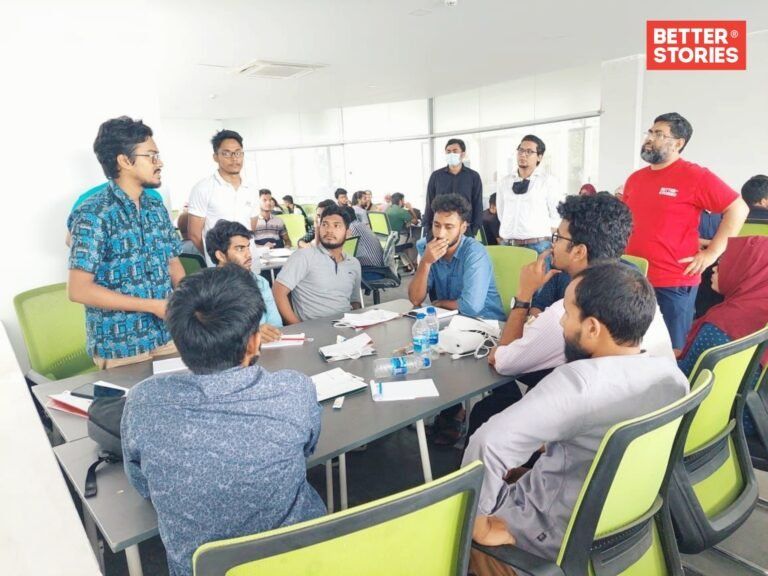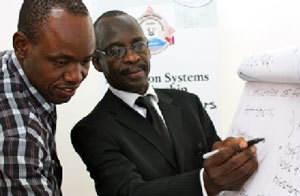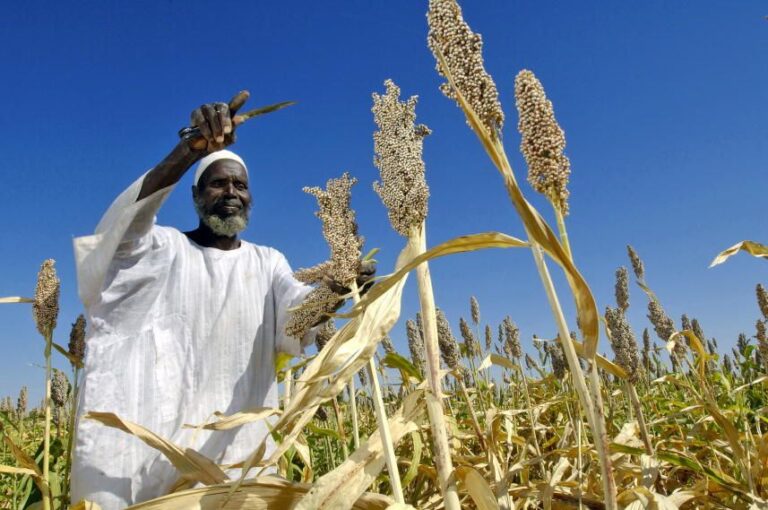From the Lab to the Field: GKI Sparks a US-Africa Conversation between Penn State and Ugandan Researchers
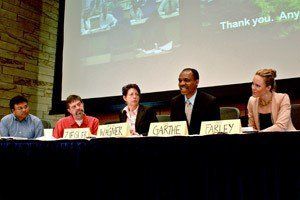
Sara Farley, GKI Fellow & PSU Professor
Caroline Wagner with PSU’s Professors Mehta,
Ziegler, Garthe explore collaboration potential
with top Ugandan researchers connected by
videoconference
For Khanjan Mehta, Director of Humanitarian Engineering & Social Entrepreneurship at Pennsylvania State University, engineering isn’t just a profession. It is a passion. He knows that science and technology can accomplish amazing things, like increasing the agricultural yields of farmers, bringing medical diagnostic tools to out-of-reach areas, and turning garbage into clean energy. For this reason, he pushes his students to explore how they can put their talents and creativity to work to address real problems as defined by community partners hailing from all over the globe. His experience and that of his students constituted only part of the story shared when researchers and innovators oceans away met virtually to discuss technologies relevant to the developing world. They shared their experiences, ideas, resources, challenges, and solutions to some of the planet’s trickiest problems.
GKI facilitated the matchmaking event, entitled “From the Lab to the Field: An International Discussion of Affordable Technologies,” in partnership with hosts Pennsylvania State University (PSU), the Uganda National Council on Science and Technology, and the Uganda Management Institute. Held via teleconference on April 22, 2011, the event brought together fifteen scientists from the US and Uganda to discuss their ongoing efforts to market and distribute affordable technologies, and how they might build on each other’s work. Twelve of the scientists—including five LINK (Learning and Innovation Network for Knowledge and Solutions) Challengers (for more on GKI’s LINK program click here)—are part of GKI’s international network, while the other three represented PSU. The event was a jumping-off point for these researchers, providing them an opportunity to share what they have to offer. The meeting also provided a platform for identifying resources needed to successfully complete their research, improve their technologies, or simply find partners to help continue their path-breaking work.
Mehta demonstrated a number of technologies that his students designed and improved in the classroom and during fieldwork in partnership with communities located in various global geographies. Mehta stressed his focus on keeping the end-user in mind when refining technologies. His students concentrate their efforts on making products that are economically sustainable and available through open intellectual property. Technologies shared include a sisal decorticator, customizable greenhouses, low-cost solar dryers, medical and telemedicine technologies, and a mobile phone social network tool. PSU Professor Gregory R. Ziegler discussed the importance of intermediate food-processing technologies for enhancing entrepreneurial food enterprises, and exhibited his Injera (the preferred Ethiopian bread) processing technology as an example. PSU Professor Jim Garthe demonstrated Plastifuel, an energy source made from compressed and heated plastic waste. The twelve Ugandan participants presented their current work and challenges to their potential PSU partners as well. LINK Challenger Fred Kabi for example, detailed his efforts to develop a molasses-based milk booster to support cattle production in Uganda. He expressed his interest in identifying collaborators to assist him with specific marketing and intellectual property rights issues associated with his product.
GKI Chief Operating Officer Sara E. Farley offered insights into the intersections of challenges and resources shared. For example, LINK Challenger Peter Ebanyat of Makerere University is working to engage communities in research and technology development efforts, as is Mehta, who has experience involving communities at the very point of technology conceptualization. Mehta’s work developing a database of community needs and a mobile phone distribution center could easily support the efforts of Ebanyat who is developing similar systems of data storage and exchange in the Ugandan context, and vice versa. Challenges to successful commercialization; problems with moving successful technologies from universities to factories to fields; the inefficiency of accessible technologies; and a lack of training and updated curricula for students: these aren’t African challenges nor are they American ones. They are common to both contexts.
This successful inaugural videoconference laid the groundwork for potentially fruitful partnerships between PSU researchers and their East African counterparts going forward. Participants on both sides expressed eagerness to continue the conversations initiated and to repeat the experience in the near future. Fred Kabi noted with enthusiasm, “The sky will be the limit if we can continue working together. We need to go on and on and on to alleviate hunger and end poverty.”
Beyond the Conversation: Bringing Partnerships to Life
This event marked one of many ongoing partnership activities between GKI and PSU. It was at this event that GKI met its newest team member, Serena Wang, a recent Penn State graduate and student of Professor Ziegler’s. Beginning her Doctorate at PSU, Serena now supports GKI’s work in the East African Community, (?link to GKI Jumpstarts East African Harmonization) conducting research for GKI’s collaborators’ toolkit. Additionally, plans are underway for an International Collaboration Colloquium to be co-hosted by GKI and PSU in 2012. The Colloquium will provide a dynamic forum to link American and African researchers working on shared challenges in agricultural science and technology. One of the goals of the event is to provide a mechanism of support for collaborative innovation teams forged during the Colloquium. GKI’s plans to extend the benefits of the event from the conference room to the field and to society more broadly where the impact of collaborative innovation must be discernable to be deemed successful.
Contributor: Christina Golubski, GKI
Photo credits: Pam Knowlton, PSU


